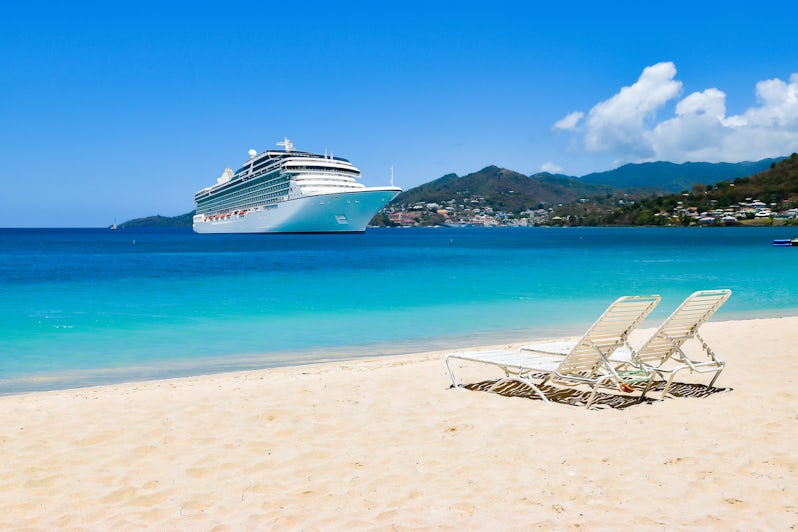
Should You Pay for An Upcoming Cruise -- Or Cancel? We Examine The Choices


With cruise cancellations continuing to be extended further into 2021, it can be difficult to determine when cruising will truly resume.
For people with cruises booked through 2021 and into 2022, the big question dominating the Cruise Critic's message boards is whether you should pay in full for an upcoming cruise -- or cancel it entirely.
It's a topic with no easy answer, as the best course of action is largely determined by personal circumstances and comfort levels. Here are a few options you should consider before you make your decision.
Booking a New Cruise

Booking a new cruise outright might seem to be an odd decision in the middle of a pandemic, but many lines have made their itineraries for 2022 and into 2023 available for booking. And while now might not be the right time to travel, it is a good chance to put down a deposit on a future dream cruise or quick getaway.
Many cruise lines have reduced deposit requirements to make them lower than ever before. Cruises, unlike other forms of travel, do not typically require full pre-payment up front. For a few hundred dollars, travelers can secure their spot on a voyage in the future and still get the best cabin selection and pricing deals. With fewer ships likely coming back all at once, fares will almost certainly be higher than they are now.
On the downside, having a few hundred dollars tied up may not be what cruisers will want -- or can afford -- during these unprecedented times.
Paying for an Upcoming Cruise

The decision about whether to make final payment on an upcoming cruise that is still scheduled to go ahead is a difficult one. It is also one that is highly dependent on personal circumstance.
As we enter into spring, final payment is coming due on voyages set to depart into the late summer and early fall. Whether those voyages will actually set sail -- and what vaccination or testing requirements for COVID-19 will be in place like then --remain to be seen.
For those with the financial security to do so, making final payment is the ideal choice. If that particular fall voyage goes ahead, flexible cancellation policies will, in most cases, allow you to change your mind later on and receive a Future Cruise Credit, or FCC.
Making final payment also prevents your booking from cancelling outright -- though some cruise lines are being more generous with the final payment dates than others, extending them into the future.
Should a cruise with final payment be cancelled down the road, cruisers are typically being offered the choice of an FCC or a full refund; though it is worth noting both could take a substantial amount of time, up to 90 days, to be credited to your account.
Cruise lines have tried to incentivize these FCC's by offering more than the amount paid. Most lines are offering 125 percent of the cruise fare as an FCC, though some like Virgin Voyages have in the past offered whopping 200 percent.
Cash refunds, on the other hand, max out at 100 percent of all monies paid.
The immediate cons of making final payment are obvious for those who have lost their sources of income, or who feel uncomfortable about the idea of travel, even further down the road. The money is better off back in your bank account.
Cancelling Outright

There are a number of reasons to want to cancel a cruise outright, though the two leading concerns are health and finances.
Those who have faced significant financial hardship as a result of the global economic downturn spurred on by the COVID-19 coronavirus would do well to cancel and receive whatever money they can. Note that in some cases, it may be better to wait for the line to offer to cancel first in order to trigger the newer cancellation policies that offer either a refund or a future cruise credit for monies paid.
Many cruises, unless otherwise specified, will let you cancel your booking prior to final payment with no penalty, with the money paid returned to your original form of purchase.
Likewise, COVID-related health concerns are a very valid reason to cancel outright. No one knows your personal level of comfort better than you do. It is important to make future decisions with that in mind. With more cruise lines requiring COVID-19 vaccinations, the ability to be vaccinated in time might also mean postponing or cancelling your sailing outright.
Cruise Critic's members are saying that they are thinking differently about how to book and pay for trips.
"We had a June 2021 Alaskan cruise booked," writes crazy planning mom. "When they announced they were being put on hold, we received an email and were given the option of refund, lift and shift, FCC, or hold on. We chose a cash refund and RCL refunded our money in 2 weeks. We are going to explore Alaska on our own instead."
Bottom Line

Whether to pay for a booked cruise in full is a highly personal decision that should be made based on a number of factors. Cruise line rebooking policies are becoming more flexible than ever, and some -- like Virgin Voyages -- are downright generous when it comes to compensation for hanging on to a cancelled cruise as an FCC.